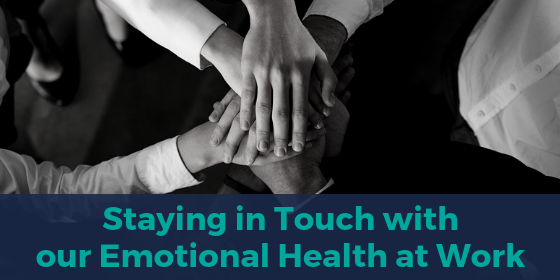I’ve been asked many times the difference between mental health and emotional health in the workplace. Our mental health refers to the hardwiring of our brain and its functioning. Our emotional health is related to the stability of our feelings and how we express them. But they are also inextricably linked in many ways. Our emotions are often expressed as a consequence of our mental health and our emotions, when unchecked, can lead to mental health issues.
Ensuring our working environments are safe and supportive for our emotional health is as crucial as our physical and mental health. I can’t stress enough the importance of a realistic but positive attitude from the top down in any company. So, here are my top tips for social and emotional health in the workplace:
1. Good rest and sleep is a priority for good all-round health, and one we often abuse. No employee should be burning the mid-night oil on a regular basis. Is someone doing a lot of overtime or amassing hours and hours of TOIL? Look over their workload and their job description to see if there are any areas they can cut, or whether a new job needs to be created.
2. Identify and build personal strengths for you and your employees as individuals and as a team. These will include our relationship skills, our self-esteem and self-worth. Instil a sense of purpose to workers’ roles so they are aware of the benefit they make to the company.
3. Remember to have in mind who looks after the boss. How do you provide for your own emotional wellbeing? And are you modelling a culture of emotional resiliency, or are you at constant boiling point?
4. An open-door policy is important to emotional health. Fostering an environment that encourages constructive self-expression without judgement is key to employees’ wellbeing.
5. Bullying is also a major factor to consider. Dealing with bullying is a sensitive subject, and is not actually deemed illegal, but behaving in an intimidating or offensive way is harassment, which is. Put processes in place to deal with it quickly: if tackling it informally is not a safe option, management, HR or a trade union should deal with it in accordance with their policies. If still unsatisfied employees can make an official complaint, then legal action. ACAS are a useful resource that provide training, advice and conciliation.
6. Make sure that no-one is being left out. Are there people in your company who may seem “cliquey” and don’t allow others to join in, by covert means or otherwise? This can be tricky to overcome, but I have successfully helped companies strengthen their employees’ relationships by introducing such things as co-operative Fridays, where everyone contributes to lunch with a homemade offering. This gives employees time away from their work and opportunities to relax and connect with others.
7. Consider ALL employees’ emotional health, including women back from maternity leave and possible loss of confidence when returning to work.
For full article - Refer to Author Harriet Cadman - UK













